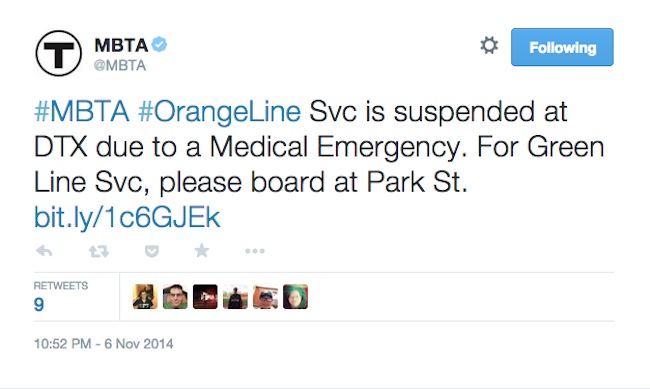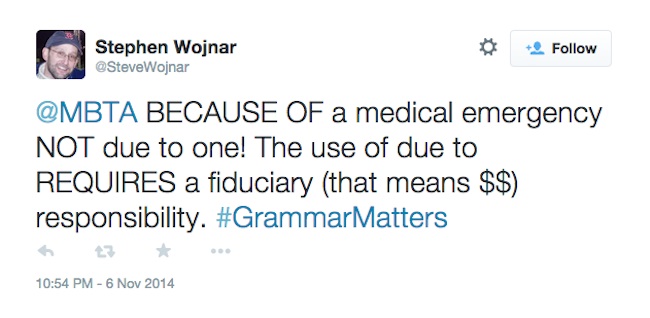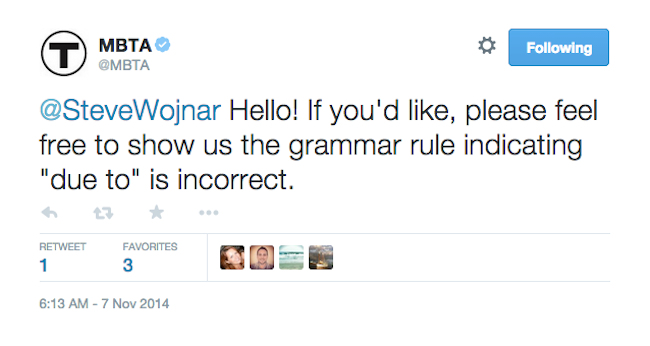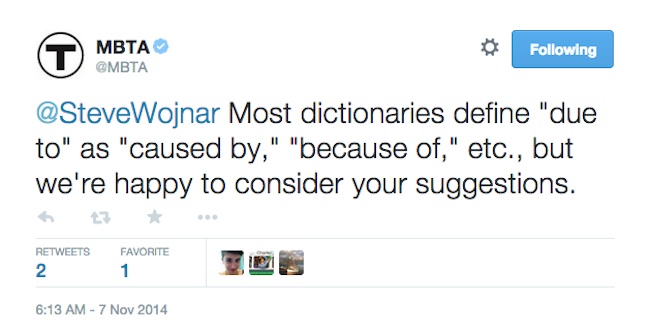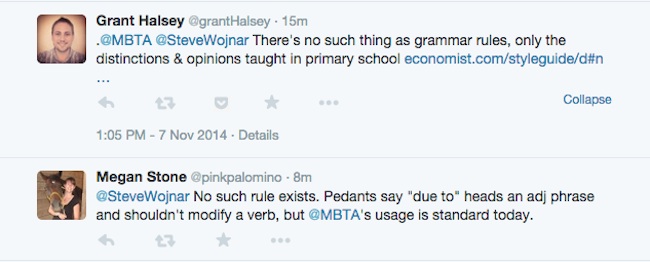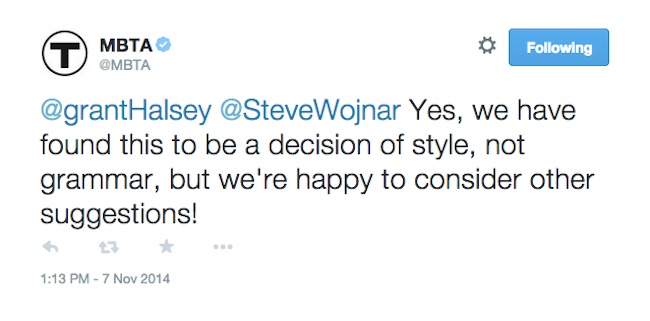MBTA Gets Into Grammar War on Twitter
When there were severe delays on the Red Line late Thursday night after a person was struck and killed by a train, some people were thinking less about the life of the victim, and more about the MBTA’s use of grammar.
At 10:52 p.m., in as many characters as Twitter would allow, MBTA officials announced via social media that service was suspended at Downtown Crossing due to a medical emergency, and asked riders to board at Park Street instead:
But rather than simply comply and heed the T’s advice during the fatal incident, one Twitter user corrected the transit agency for using the term “due to” in their update to passengers. The user claimed that the MBTA should have opted for “because of,” since “due to” was an improper use of grammar:
The tweet ignited a debate online about whether or not the T was wrong, with other users coming to the transit agency’s aid. To say that it escalated more quickly than the escalators at the MBTA’s Porter Square stop would be an understatement:
Proving that they don’t need their riders to fight their battles, whoever was manning the MBTA’s Twitter account during the medical emergency stepped in to add context to the ongoing debate. They then challenged the original commenter to show them the grammar rules on “due to”:
Realizing that their previous Tweet may have been a bit harsh, the MBTA toned it down, and asked more politely:
Then, others started jumping into the conversation, to once again support the MBTA’s use of the term:
This guy even made a reference to how its written in “Garner’s Modern American Usage,” which is described as the “the preeminent guide to the effective use of the English language,” just to hammer the point home:
Taking it further, the MBTA then explained that indeed it was a matter of style preference, and that they were within their rights to use “due to” afterall:
Just to be sure, though, Boston reached out to an expert on the subject. We called the Boston Language Institute and spoke with their resident English instructor. He told us, sure enough, that what the MBTA did was just fine. “There’s no real rule. They are synonymous, essentially. Based off of the fact that I have taught English before, I would tell my students that there really is no difference,” said Andrew Feinberg, program coordinator at the institute. “Although, ‘due to’ is a little more formal.”
